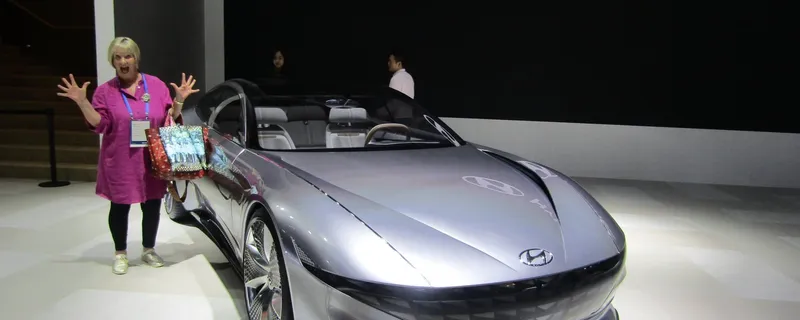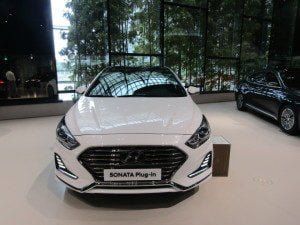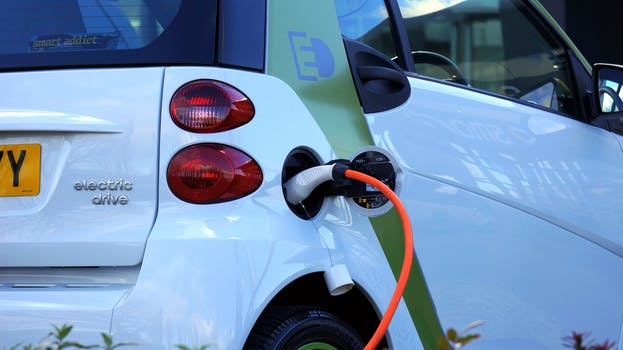Women Drive the Transition to Electric Cars
06/08/2018

A study by the University of Sussex has found that women will drive the transition to electric cars.
In an article by Brendan Montague, Editor of The Ecologist and published in a newsletter from New Zealand company, Chargemaster, he declared:
“Men generally want speed, acceleration, style. Women want there to be a planet when their children grow up.”
The study found that women drive fewer kilometres per day, expect to pay less for their next car and have considerably less experience driving electric vehicles than men.
It also found that men allocate more importance to speed and acceleration and design and style when choosing a car, while women rank ease of operation, safety, running costs and environmental impact. Ergo, electric vehicles will suit women very nicely.

The study report went on to say that more focused marketing of electric cars to women could be a more effective way of creating the required revolution away from conventionally powered cars than universal government intervention.
“Highly educated women are an untapped but potentially lucrative market for electric vehicles sales because they have greater environmental and fuel efficiency awareness than men,”
Regardless of the fuel source, hasn’t that always been the case? Not according to television car advertising. After decades it’s still almost impossible to see a woman driving a car; she’s generally sitting happily in the passenger seat with a Colgate smile on her face while a man is behind the wheel. Or she’s simply not seen at all.

It’s a well-documented maxim that women influence as much as 80 percent of all car purchases, yet car advertising still fails to reflect that. Indeed, some car companies tacitly don’t want their cars to be seen as ‘women’s cars’. When told one of their cars had won the supreme award in Women’s World Car of the Year, a Mercedes dealer told a woman motoring journalist exactly that. And, of course, Mercedes, and other car companies, tailor their advertising accordingly.

The University of Sussex report also recommends the newly-retired be targeted for electric vehicle promotion even as it declared this demographic has ‘less interest in more environmentally friendly vehicles’.
“Pensioners have high car ownership, drive short distances, have high budgets for car purchases and are less interested in design – all characteristics that could make them ideal electric vehicle owners.”
Professor Benjamin Sovacool, lead author of the study and Director of the Centre on Innovation and Energy Demand (CIED) at the University of Sussex suggests the sooner electric vehicle manufacturers and policymakers understand how a diverse range of factors influence the decisions people make about their transport choices, the quicker people will switch to more sustainable modes of transport ‘hopefully long before legislation leaves them with no petrol or diesel alternative come 2040.’
The report, somewhat paradoxically, found that men, particularly those aged between 30 and 45 years with higher levels of education, working in the not-for-profit sector or academia, are more than twice as likely to own electric cars than women or retirees.
“Environment benefits are not the key reason they buy electric cars – instead they emphasized aspects such as comfort or acceleration.” It advocates a more nuanced approach to get car buyers to think electric.

Electric vehicles still suffer from an image problem with families preferring large, conventional cars that symbolize welfare and status.
“If the car-driving population of the world is to kick its habit for petrol or diesel vehicles in preference for something more environmentally friendly, then a more nuanced approach is needed than has been evidenced so far,” said Professor Sovacool as he called for a ‘behavioural adjustment’ to adapt to the different restrictions of an electric vehicle.
The same ‘behavioural adjustment’ could be encouraged from the (mostly male) car executives who brief advertising agencies on commercial promotion.
If an ‘adjustment’ could be made to reflect the number of women car buyers in the world, and the high degree women influence the car-buying decision, the move to electric cars might happen more rapidly and as a matter of logical progression.

This story is originally from Wenches on Adventures.







